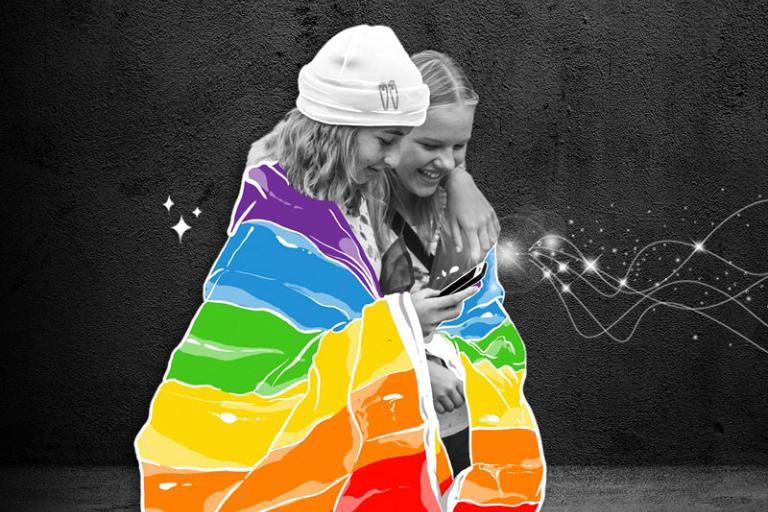Every parenthood journey is unique, just like every child is unique.
I’ve been a parent to my two step-children since they were 5 and 9 years old. At the age of 12, Freddie came forward and said they didn’t think they were straight. At 16, they opted to be called Freddie and go by they/them pronouns, instead of their birth name (now their dead name). Izzy came out as gay at age 16, married a female at 22, and over the past year realized they were non-binary and requested we use she/they pronouns.
My husband and I have always tried to be as supportive as possible, knowing that each child is on their own journey and discovering who they are. For me, this is the same as any journey for any human – asking themselves questions like, “do I have to label myself? Am I comfortable with this?”
Figuring it all out is difficult enough as it is. You shouldn’t need to manage your parents’ emotions as well. What can complicate things is that as a parent, you want to do the right thing but don’t know what it is and sometimes make mistakes. It’s a learning experience. Sometimes you just have to “phone a friend”, but even better, just ask your children directly. When I was unsure and I did ask Izzy, they told me that they weren’t even sure themselves, and they were also learning. Sometimes we have to learn together, and that can be a great experience too.
In parallel, my workplace has been somewhere where I discovered I could be open, to get the support for the journey I was on as a parent, and it’s great. Last year, for Pride Month, I met with a group to talk about being an ally, and about our kids coming out. For the first time, I shared a bit about my parenting journey and announced that Izzy had gotten married. Everyone congratulated and supported me. This was a special moment. It took me back to my high school days in the 1990s. I had a good friend who was gay. Back then he couldn’t go to his prom with his partner, so I invited him to go as my partner. It was considered such a big deal back then. What a contrast to the response at Amdocs to my female-born child marrying another female. This was validating to me and to them.
There are so many ways to be an ally. For example, you can be the one to give a quiet member of the group an equal voice. Sometimes it’s the small things that make a difference. Last year, I brought home stickers from work that displayed every kind of LGBTQ+ flag. It was a seemingly small thing, but the support from my company for the community was incredibly heartwarming. I gave both Freddie and Izzy a sheet and they were so excited to see their flags represented. This was another sign that they were being validated.
It's all about acceptance, it’s about support and love. For some people, the journey is clear; for some, it’s not so simple. At every stage, it’s important to be loving and supportive, hug them when they cry, laugh with them when they’re happy, and most importantly, be their ally.
Lana Moss


